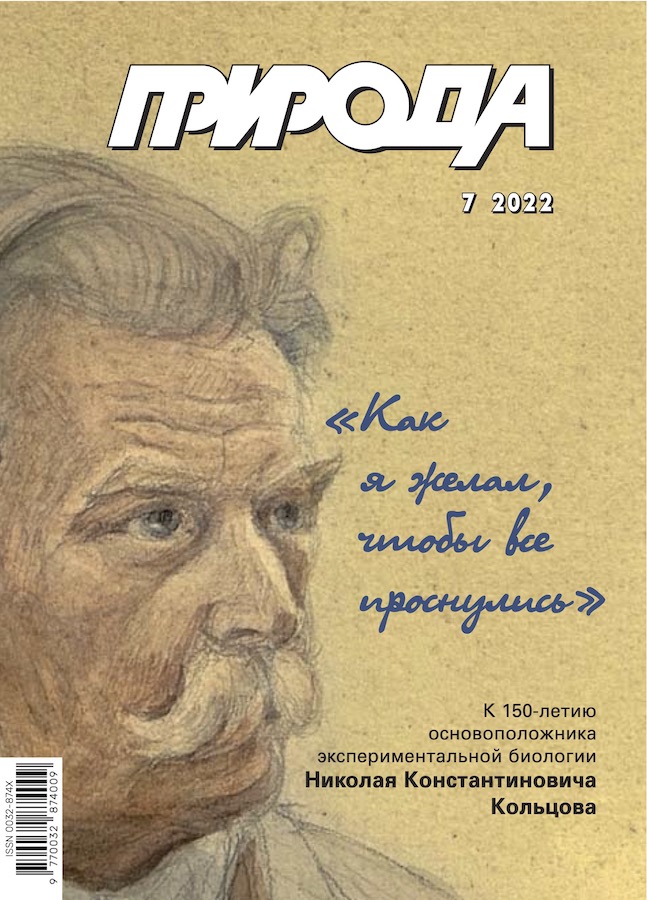N.K.Koltsov and the Russian Eugenics Movement
- Autores: Pchelov E.V1
-
Afiliações:
- Vavilov Institute for the History of Science and Technology, RAS
- Edição: Nº 7 (2022)
- Páginas: 18-25
- Seção: Articles
- URL: https://journals.eco-vector.com/0032-874X/article/view/631034
- DOI: https://doi.org/10.7868/S0032874X22070031
- ID: 631034
Citar
Texto integral
Resumo
The article is dedicated to the key role of the great Russian biologist N.K.Koltsov in the organization of scientific research in eugenics and the creation of the eugenics movement in Soviet Russia in the 1920s. Born in England at the beginning of the 20th century, Eugenics as the science of improving the human race became very popular in many countries. In Russia, it received opportunities for rapid development after the Revolution of 1917, which placed on the agenda the question of creating a new, perfect man of a new society. One of the founders of genetics in Russia, N.K.Koltsov, created a Eugenic Department at the Institute of Experimental Biology, headed the Russian Eugenics Society and the Russian Eugenics Journal. He was the author of program works in the field of eugenics and a plan for extensive eugenic research conducted as cross-disciplinary research in biological and human sciences. He was able to attract leading experts in the field of genetics, anthropology, medicine, experimental biology, jurisprudence, historical genealogy, etc. to the eugenics movement. The formed unique scientific association carried out a number of outstanding studies that have not lost their scientific significance yet. An active popularization and propaganda of eugenics in society led, among other things, to vide introduction of these ideas into the pages of literary works. During the years of the Great Turn of the 1920s and 1930s, the eugenics movement in Russia was disbanded for ideological reasons. However, eugenics has become the scientific basis for successfully developing human genetics.
Palavras-chave
Sobre autores
E. Pchelov
Vavilov Institute for the History of Science and Technology, RAS
Email: evg-pchelov@yandex.ru
Moscow, Russia
Bibliografia
- Россиянов К.О. Опасные связи: И.И.Иванов и опыты скрещивания человека с человекообразными обезьянами // Вопросы истории естествознания и техники. 2006. №1. С.3–51.
- Спивак М.Л. Мозг отправьте по адресу… М., 2010.
- Krementsov N. Revolutionary Experiments: the Quest for Immortality in Bolshevik Science and Fiction. Oxford, 2014.
- Иванов Вяч.Вс. Первая треть двадцатого века в русской культуре: мудрость, разум, искусство // Труды Русской антропологической школы. 2007. Вып.4(1). С.8–117.
- Пчелов Е.В. Русские книжные издания по евгенике 1920-х гг. // Библиография. 2018. №4. С.100–109.
- Озернюк Н.Д. Научная школа Н.К.Кольцова: Ученики и соратники. М., 2012.
- Медведев Н.Н. Юрий Александрович Филипченко. 1882–1930. М., 2006.
- Бабков В.В. Заря генетики человека: Русское евгеническое движение и начало медицинской генетики. М., 2008.
- Пчелов Е.В. Евгеника и генеалогия в отечественной науке 1920-х годов // Родословная гениальности: Из истории отечественной науки 1920-х гг. М., 2008. С.7–60.
- Кольцов Н.К. Улучшение человеческой породы // Русский евгенический журнал. 1922. Т.I, вып.1. С.3–27.
- Кольцов Н.К. Генеалогия Ч.Дарвина и Ф.Гальтона // Русский евгенический журнал. 1922. Т.I, вып.1. С.64–73.
- Кольцов Н.К. Родословные наших выдвиженцев // Русский евгенический журнал. 1926. Т.IV, вып.3–4. С.103–143.
- Бабков В.В. Н.К.Кольцов и его Институт в 1938–1939 гг. // Онтогенез. 1992. Т.23, №4. С.452–453.
Arquivos suplementares









